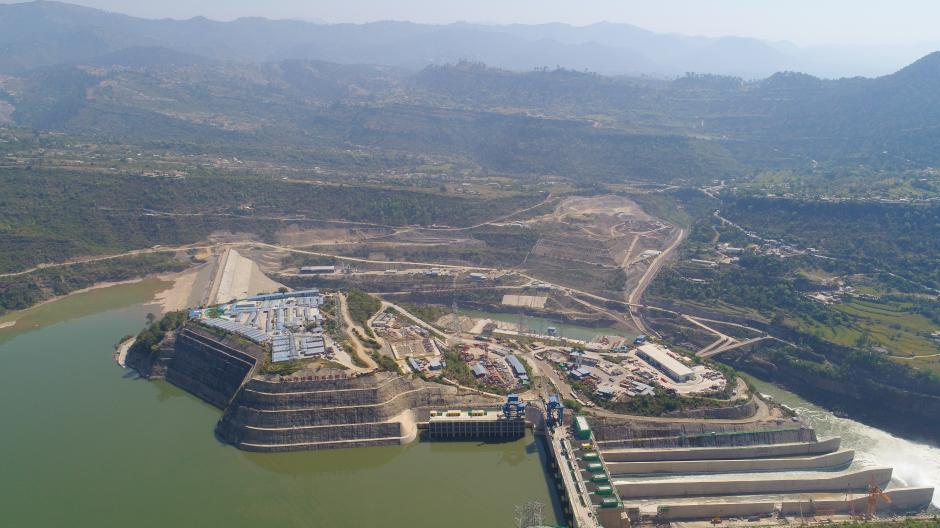
Passengers on the first cross-border passenger train of the China-Laos Railway, which departed from Kunming, capital of southwest China's Yunnan Province, heading for the Lao capital Vientiane, April 13, 2023. /CFP
Passengers on the first cross-border passenger train of the China-Laos Railway, which departed from Kunming, capital of southwest China's Yunnan Province, heading for the Lao capital Vientiane, April 13, 2023. /CFP
Editor's note: Chu Shan, a special commentator for CGTN, is an international affairs commentator. The article reflects the author's views and not necessarily those of CGTN.
Some Western countries have a habit of hyping up notions they concocted to serve their domestic agenda. The most recent example would be "de-risking" in relation to China, a substitute for "decoupling." However, as any discerning individual can tell, this is merely old wine in a new bottle.
Three years ago, the Eurasia Group, one of the world's leading political risk consultancies, called a "divided America" the biggest risk facing the world. It is still true today. But rather than focusing on the crisis at home, the U.S. chose to label others as "risk" and blame them for its own problems. Here is how the U.S. "de-risking" in fact poses risks to the world, and how China keeps the world away from such risks.
China as a force for unity
The U.S. has a long history of pursuing "isolationism" since its independence. The truth is: the U.S. wants to avoid international responsibility, so it engages in multilateral institutions only when doing so fits its self-interest. While claiming no interference and no involvement in the affairs of other countries, the U.S. has been actively building small blocs such as AUKUS, QUAD, the Five Eyes and G7 with specific targets in mind, stoking division, confrontation and instability.
By contrast, China is committed to building a community with a shared future for mankind and has been steadfast in supporting and practicing genuine multilateralism for decades: becoming ASEAN's dialogue partner, joining numerous multilateral organizations, launching the Asian Infrastructure Investment Bank, and advocating global public goods like the Belt and Road Initiative (BRI), the Global Development Initiative, the Global Security Initiative and the Global Civilization Initiative, the list goes on. While some countries withdrew from international obligations, agreements and organizations, China called for greater unity and never shied away from responsibilities as a major country.

Aerial photo shows a view of Karot Hydropower Plant in Pakistan's eastern Punjab Province, April 7, 2022. /Xinhua
Aerial photo shows a view of Karot Hydropower Plant in Pakistan's eastern Punjab Province, April 7, 2022. /Xinhua
China as a force for cooperation
"The dollar is our currency, but it's your problem." For years, under the hegemony of the dollar, the U.S. exported inflation to the rest of the world, triggering currency or debt crises in other countries and intensifying international economic and financial risks. The U.S. also exploits the dollar's dominance to practice "financial terrorism." It has imposed economic sanctions on nearly 40 countries, adversely affecting nearly half of the global population. Moreover, the U.S. is weaponizing its advantages in technology by building "small yards with high fences" like the "Chip 4 alliance" and "Clean Network initiative" — even its "allies and partners" may get shut out of these "yards."
China, unlike the U.S., champions common prosperity and is willing to share its development opportunities with the world. With the participation of 150 countries and 30 international organizations, the BRI has delivered more than 3,000 cooperation projects, created some 420,000 jobs, and helped lift nearly 40 million people out of poverty. The Mombasa-Nairobi Railway, the China-Laos Railway and the Jakarta-Bandung High Speed Railway are bringing tangible fruits to local communities. The China International Import Expo (CIIE) has served as a high-quality platform for enterprises around the globe to share the benefits of China's economic development.
As for technology, Tesla is a case in point. Instead of blocking Tesla out — which the U.S. did to Huawei and is trying to do to Tiktok — China has offered a sound business environment and immense market opportunities for the American tech giant. This does put more competitive pressure on local EV manufacturers, but China believes that both Chinese and American businesses will grow and succeed through healthy competition. Had China behaved like the U.S., companies such as Apple, Microsoft, Boeing and Nvidia would never have succeeded in the world's largest market.
China as a force for stability
Political polarization inside the U.S. has reached a historic level — the Democrats and Republicans disagree on almost all major issues, as the recent debt ceiling episode revealed yet again. And this mess not only affects the American people, but people across the world.
In this era of transformation and volatility, a stable and developing China means a broader market, more capital, more choices of quality products, and more opportunities for cooperation. From 2013 to 2021, China's average contribution to global growth was above 30 percent, more than the G7 combined and ranking first among all countries. A stable and united China is a blessing for its own people, but also a source of confidence for people of other countries. Just as Jeffrey Sachs, a professor and director of the Center for Sustainable Development at Columbia University, said at Athens Democracy Forum 2022, China has made extraordinary achievements in the past four decades, and we should "take joy in China's accomplishments, not fear from it."
Today's world is far from being tranquil and "black swans" and "gray rhinos" emerge from time to time. What the world really needs are advocates of unity, cooperation and stability like China, who take real actions to keep the world away from risks, not "risk mongers" like the United States. May there be more hard doers and less toxic talkers.
(If you want to contribute and have specific expertise, please contact us at opinions@cgtn.com. Follow @thouse_opinions on Twitter to discover the latest commentaries in the CGTN Opinion Section.)